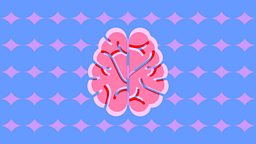The teenage brain: Seven things parents should know about adolescent behaviour

The moods, the inability to get out of bed in the morning, the embarrassment of being around parents. We’ll all recognise these common teenage behaviours.
But why do adolescents act in these ways?
Sarah-Jayne Blakemore is professor of cognitive neuroscience at University College London and the author of Inventing Ourselves: The Secret Life of the Teenage Brain.
As part of the Woman's Hour parenting podcast, she outlines seven things parents need to know about the teenage brain.

1. The teenage brain undergoes a huge transition
“Contrary to what was believed for many, many decades, the teenage brain in fact undergoes really substantial amounts of development, both in terms of its structure and its function throughout childhood, throughout adolescence and it only stabilizes around the mid-20s.
“Something to bear in mind when you have teenage children, when you work with teenage children, is that they are going through a period of really important transition.
“They are changing a lot, and the thing to remember is that those changes are there for adaptive, evolutionary reasons.
“They need to go through this period of transition in order to become fully independent adults.”
2. Teenage behaviour is often influenced by friends
“Peers are a really important source of information and influence during the teenage years.
“If you think about the risks we worry about teenagers taking, like smoking or binge-drinking or experimenting with drugs, those are risks that teenagers don’t take when they are on their own normally, but they do when they are with their friends.
“Social influence is at its highest during the teenage years.”

3. There’s a biological reason why your teenager finds it hard to get up
“Any parent of a teenager will know that sleep really changes in the teenage years.
“Young children wake up early in the morning, are really alert then and go to bed early.
“Whereas that shifts in the teenage years and teenagers are really hard to get out of bed in the morning and go to sleep at night.
“That’s probably for many reasons, including the fact that teenagers lives are much busier, they are up later doing their homework, doing after-school activities, socialising with their friends, maybe on their phones.
“But in addition to that, we also know that their biological circadian rhythm is changing.
“We know that melatonin, which in humans is the hormone that makes us feel sleepy at night, is produced in the brain about two hours later during the teenage years, than during childhood or adulthood.
“That makes it really hard for teenagers to feel sleepy and go to bed early in the evening.
“It also makes it really hard for them to get up in the morning.
“There’s a biological reason why your teenager might be in bed all morning at the weekend.”

4. Long-term health risks don’t scare teenagers
“When we are worrying about the kinds of risks that adolescents take, research shows that focusing on the long-term health risks, or the long-term legal risks of decisions, does not work as well as focusing on the social consequences of those risky decisions.
“This is because the social world is really paramount to teenagers. They care very much what their friends think.”
5. Teenagers might need decision-making and planning support
“We know that parts of the brain that are undergoing particularly substantial development in adolescence are regions involved in decision making and planning, self- awareness, awareness of other people.
“Those regions of the brain that are involved in those cognitive processes are still developing right throughout the teenage years and even into the 20s and 30s.
“And at the same time those cognitive processes are also developing gradually across adolescence.
“So adolescents might need support in those areas, like decision making and planning.”

6. Rewards are more efficient, in terms of learning, than punishments
“Adolescents respond better to immediate rewards than to punishment.
“That’s sometimes hard when we’re dealing with adolescents, whether we’re parents or teachers, but actually remembering that can be useful.”
7. Teenage years can be an opportunity
“We know that the brain is undergoing huge amounts of development during the teenage years, we know that this is a period of lots of change, lots of transition, and this period of life is a vulnerable one.
“Teenagers are particularly vulnerable to the development of mental health problems, for example.
“But it’s also a period of opportunity. The changes in the brain make the brain particularly susceptible to change and that renders this period of life an opportunity for things like learning and creativity and intervention and rehabilitation.
“It’s not too late for those kinds of interventions.”
The Woman's Hour parenting podcast is released every Wednesday.
You can listen to more from Professor Sarah-Jayne Blakemore’s here or you can download the podcast on the 大象传媒 Sounds app.



